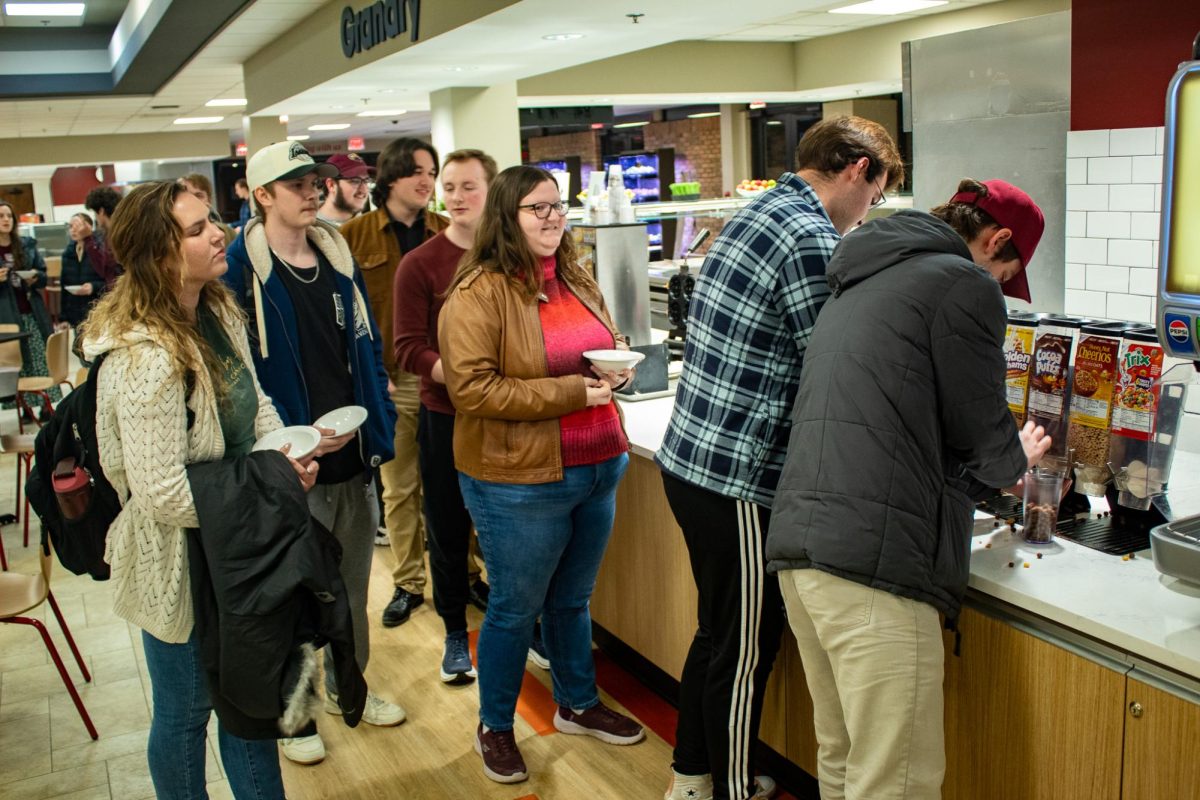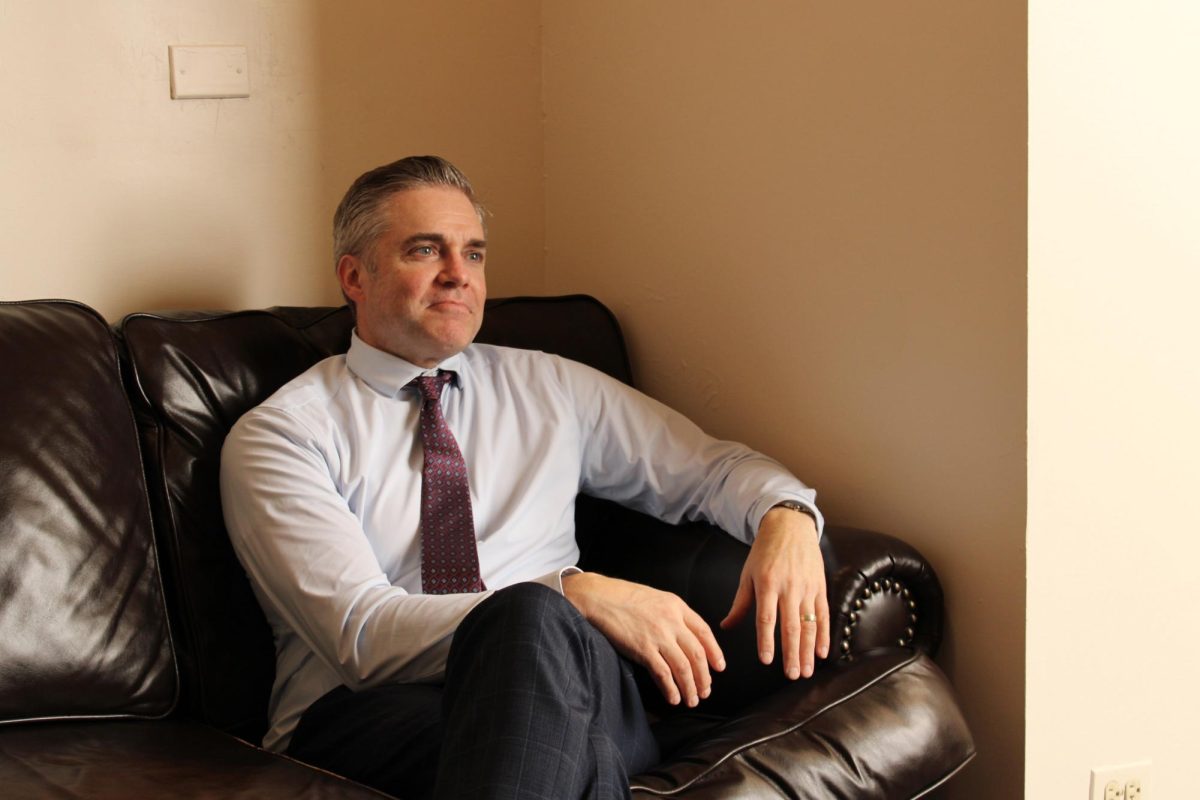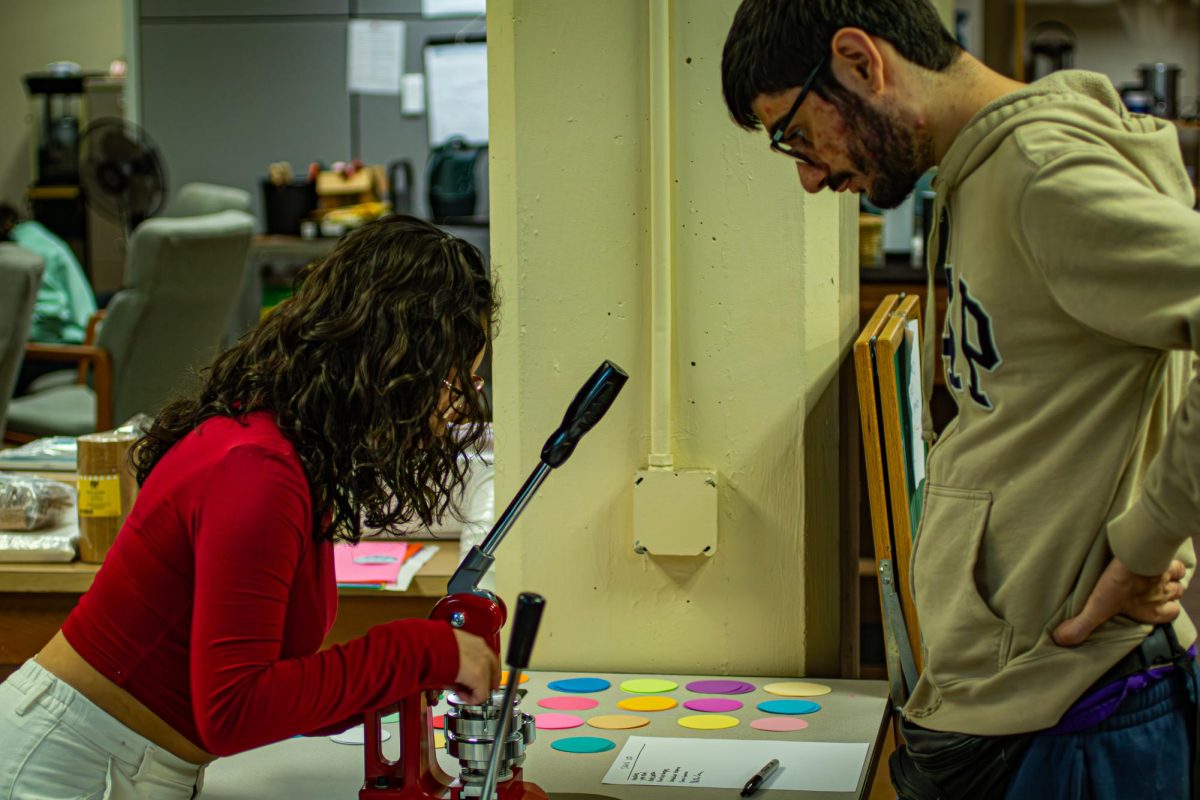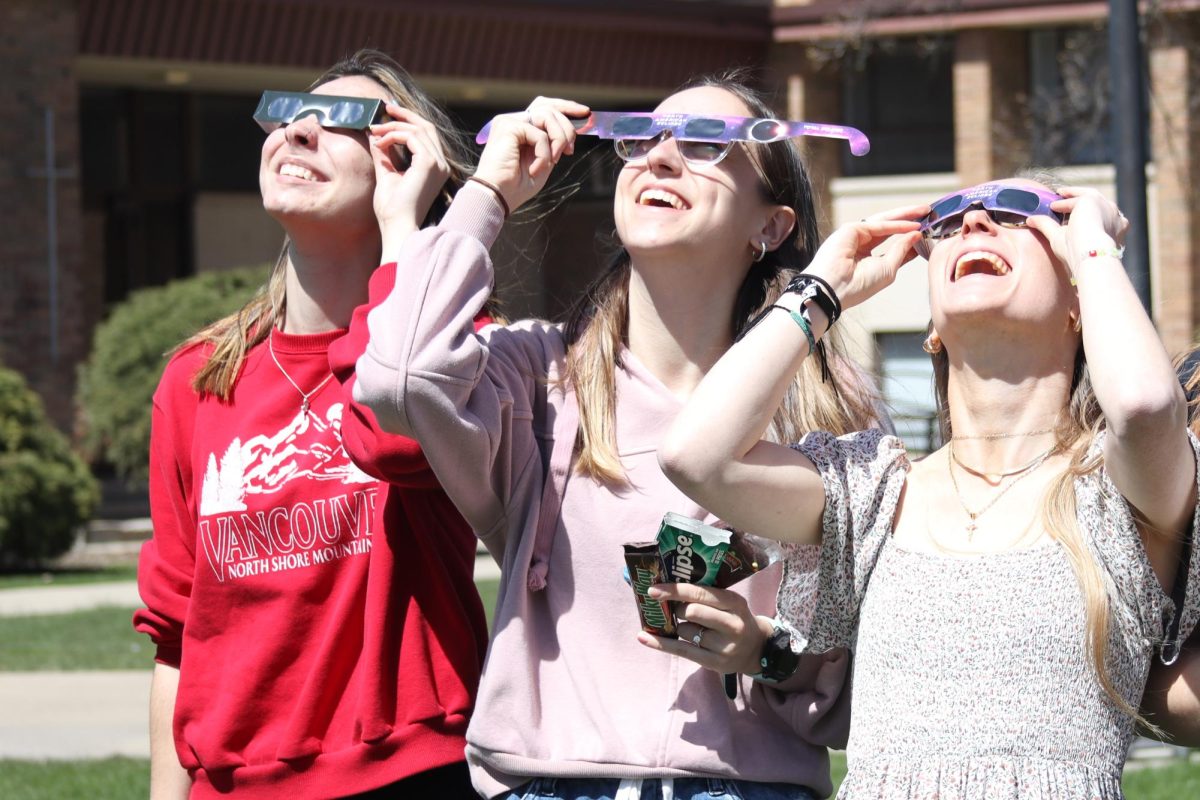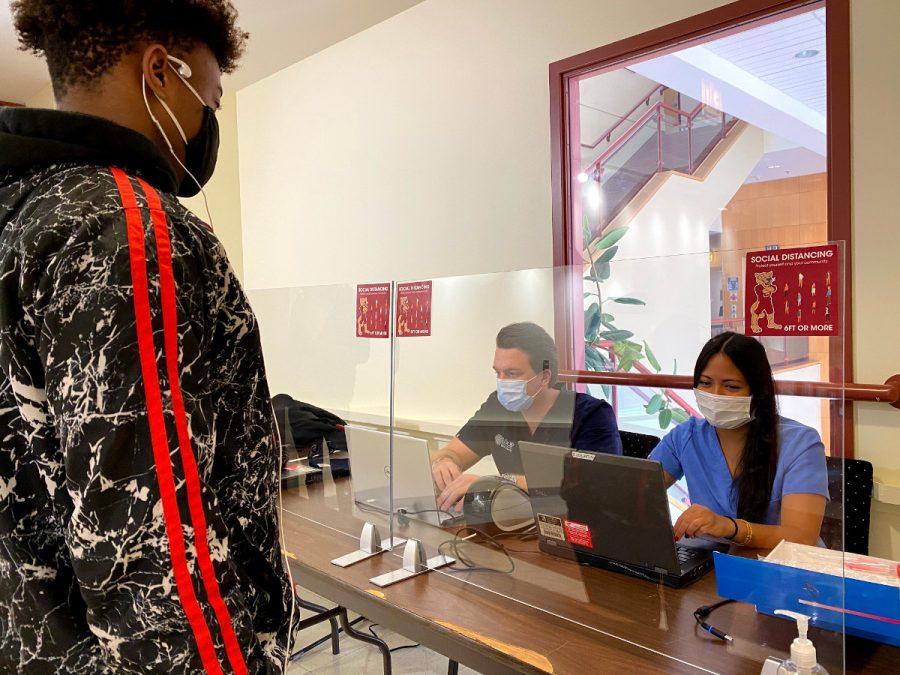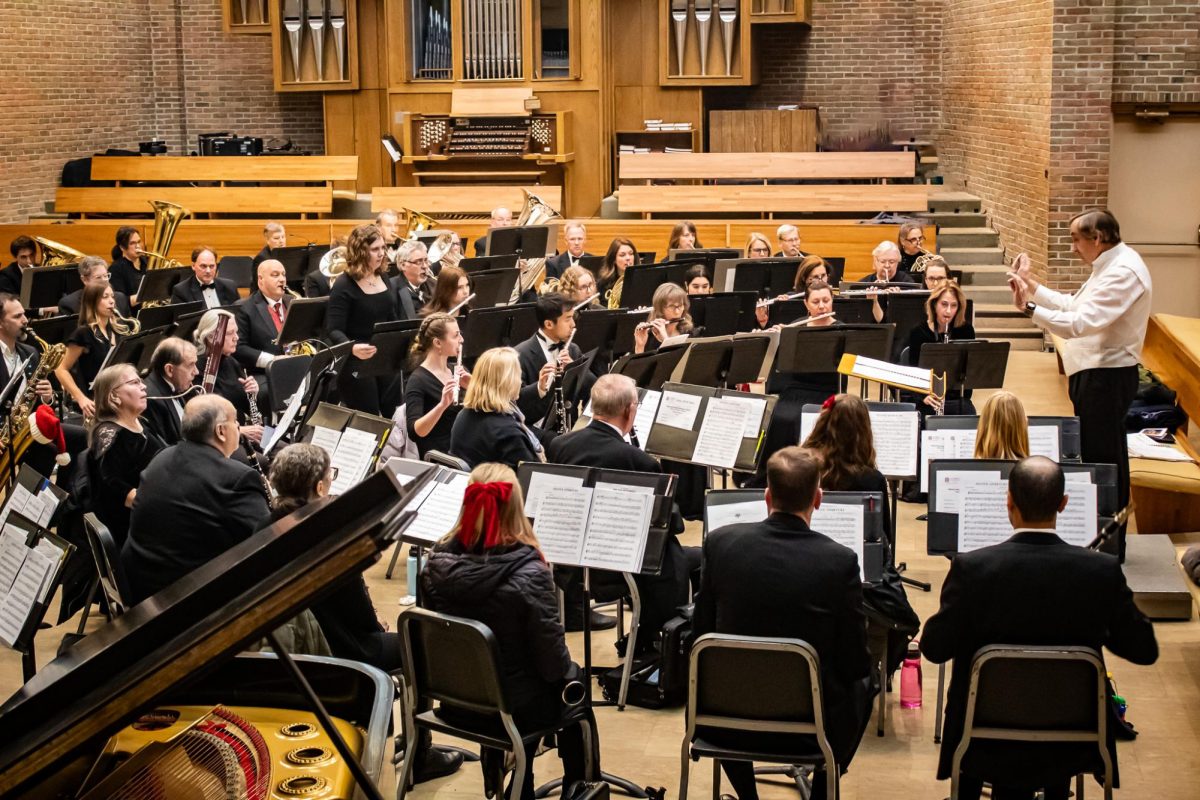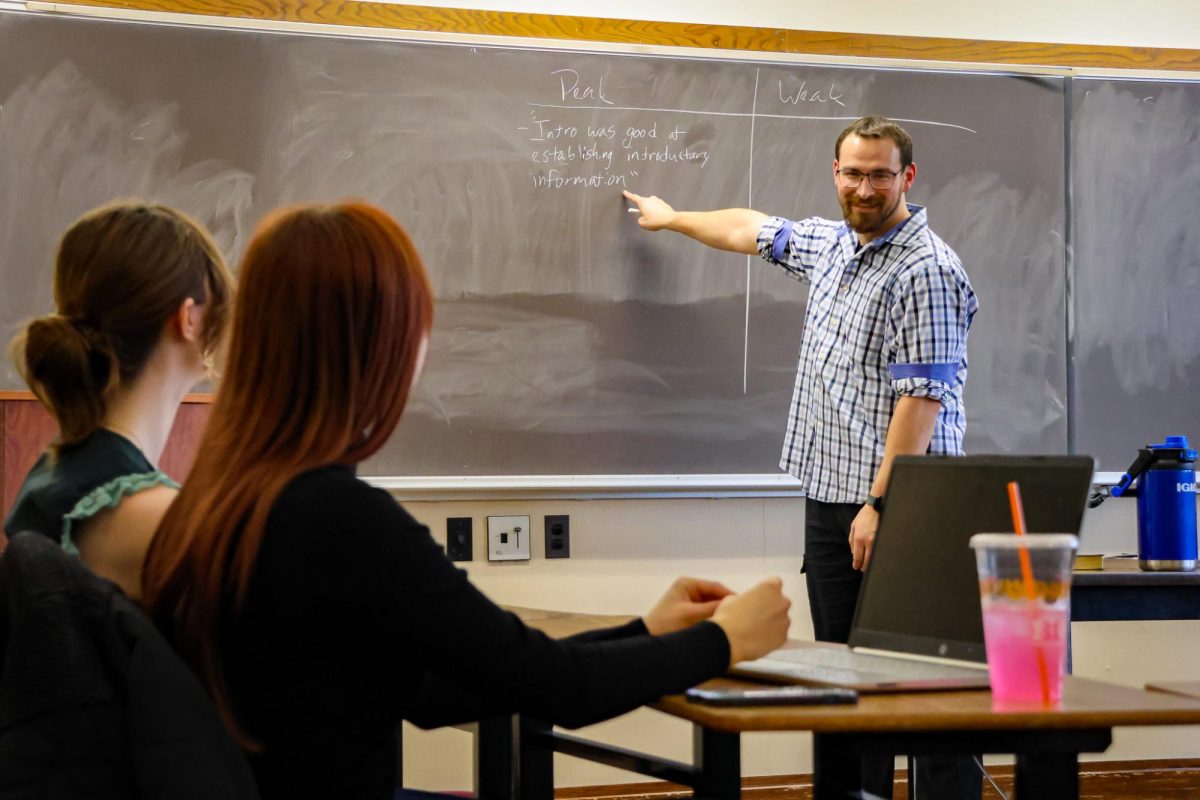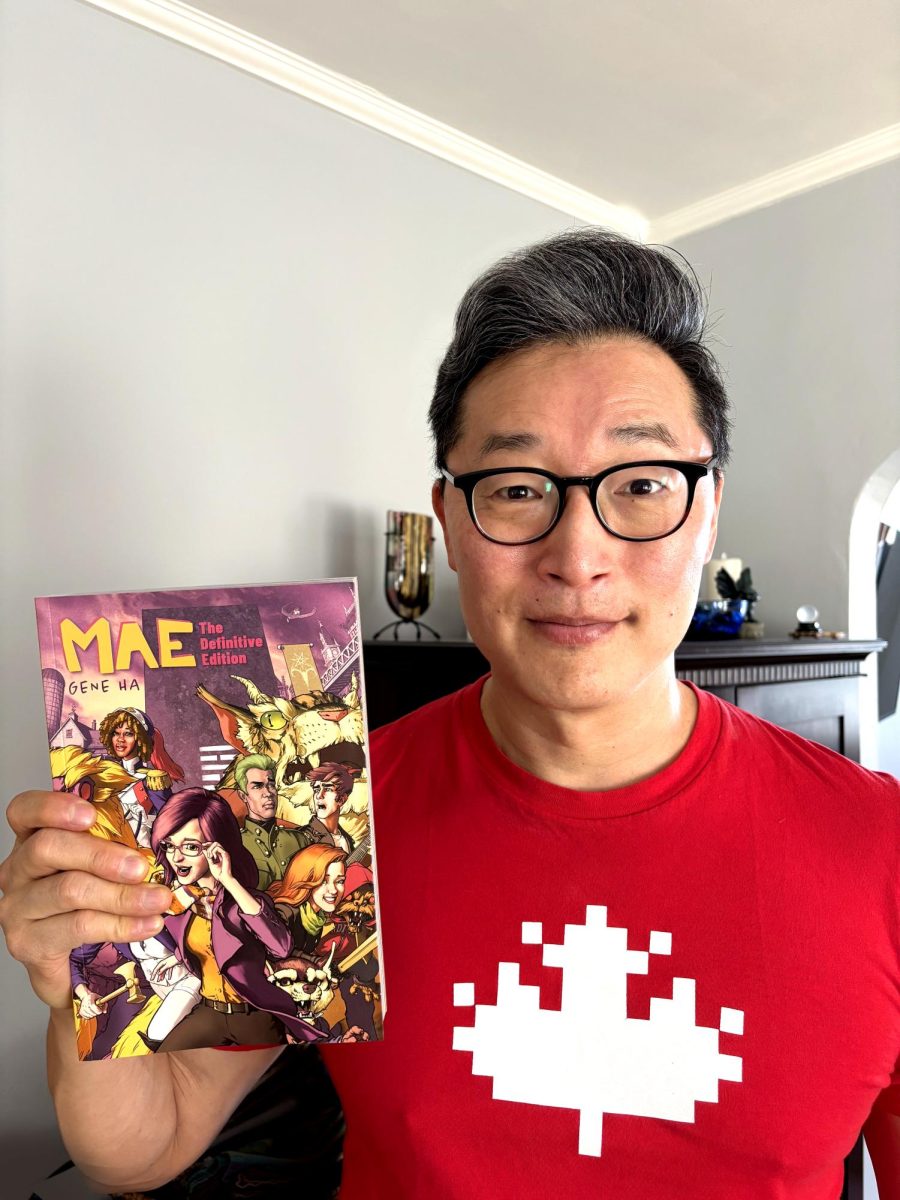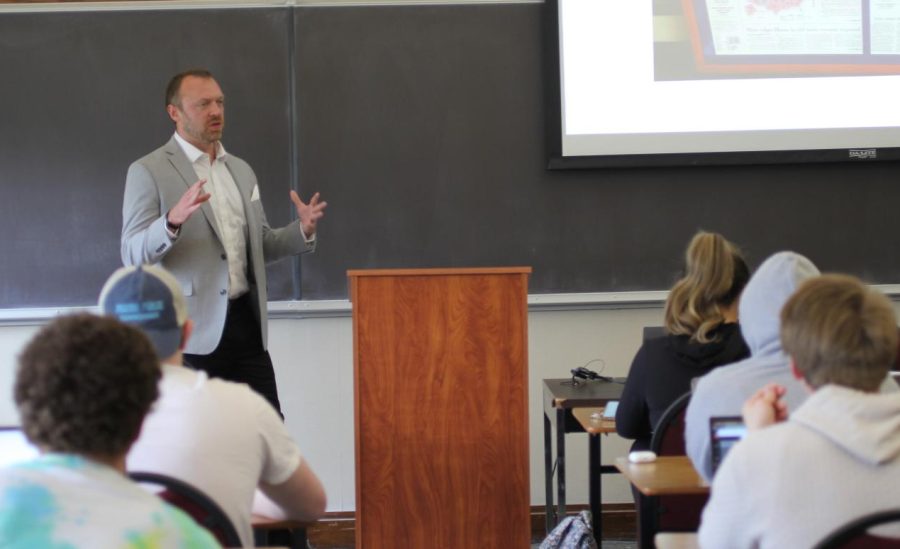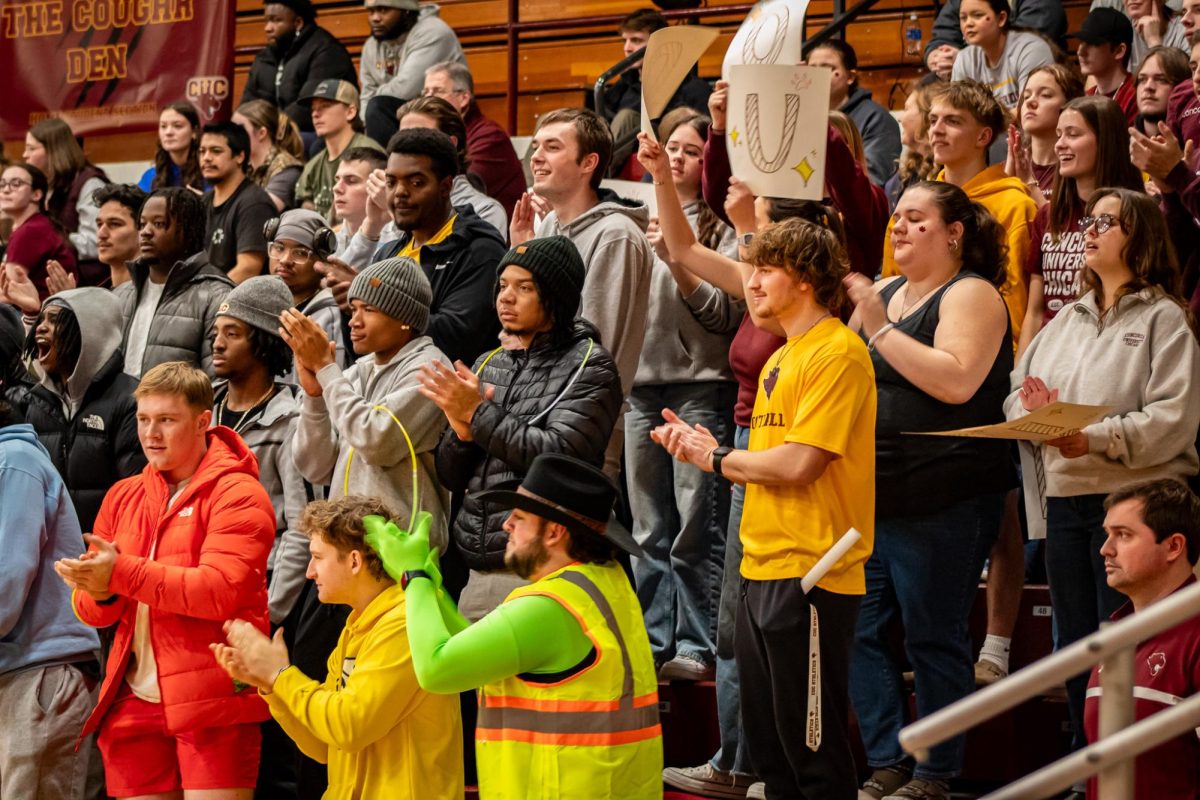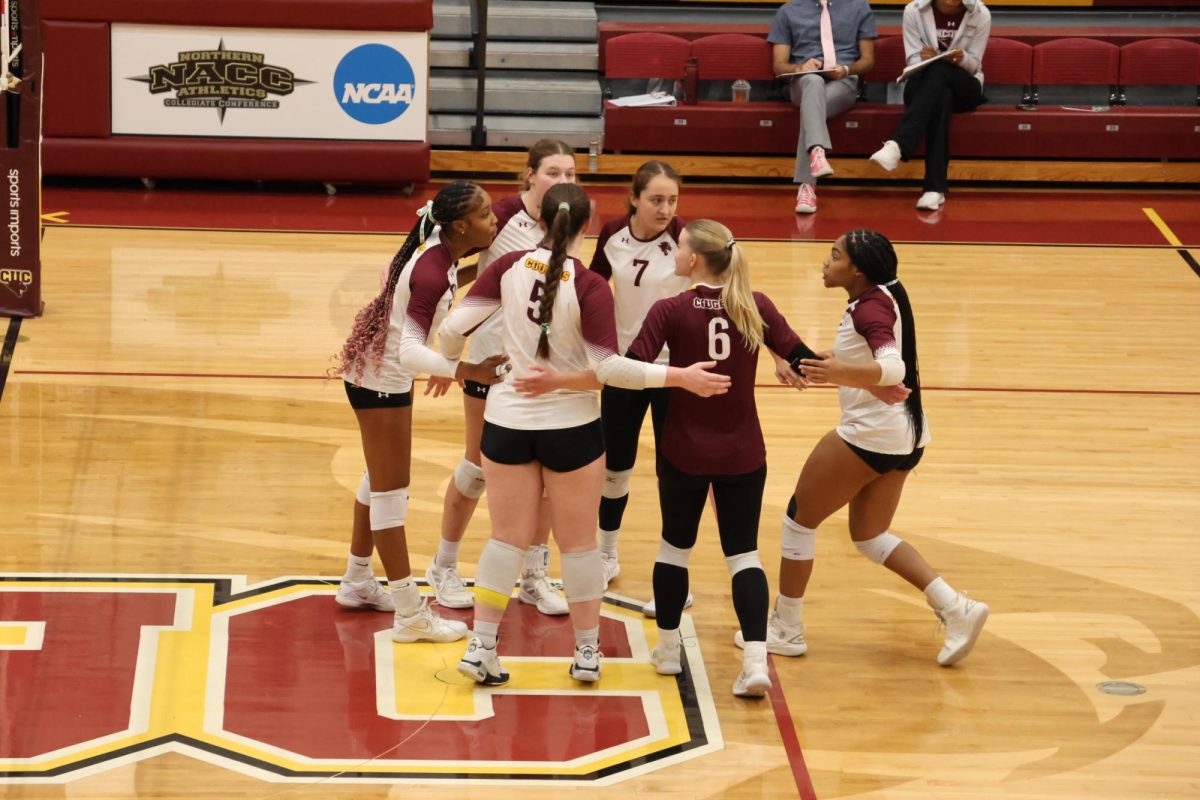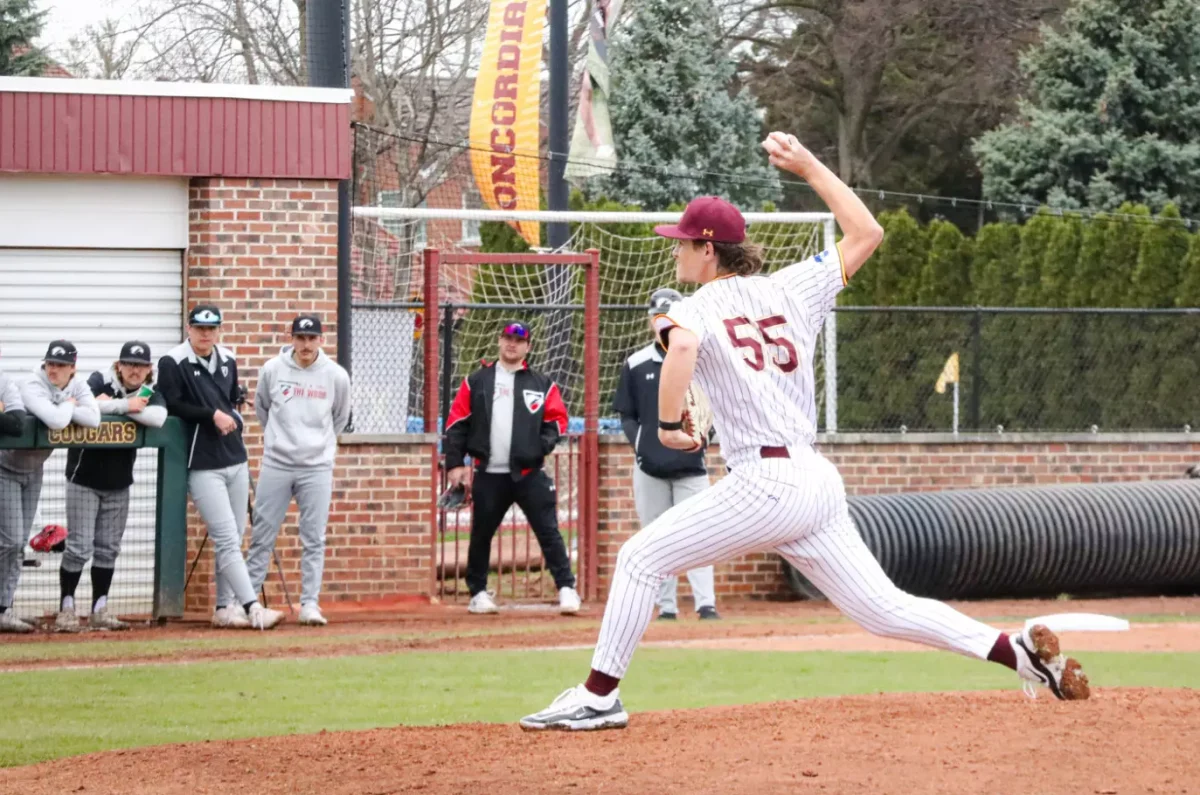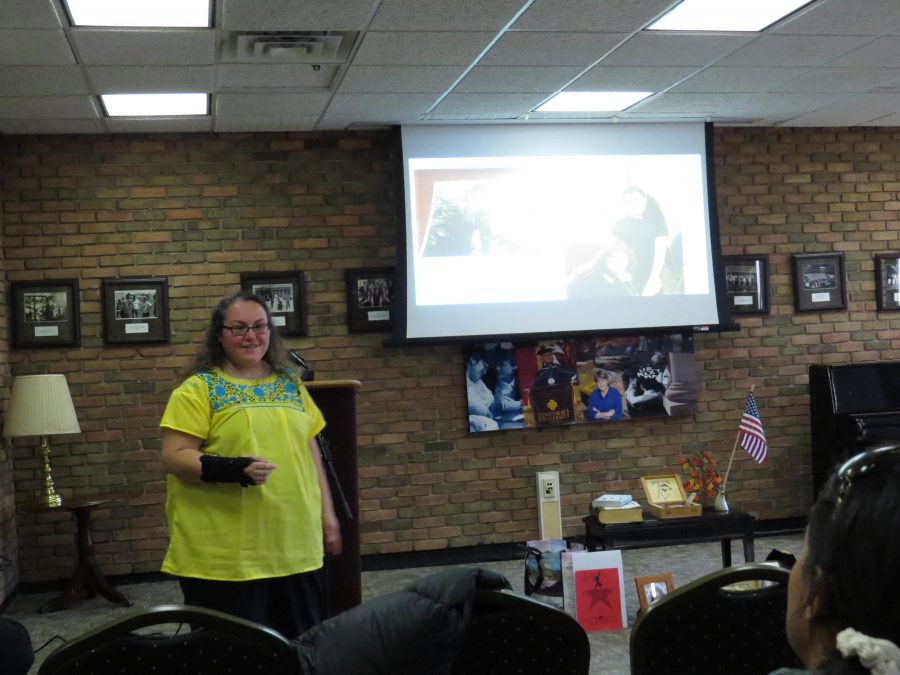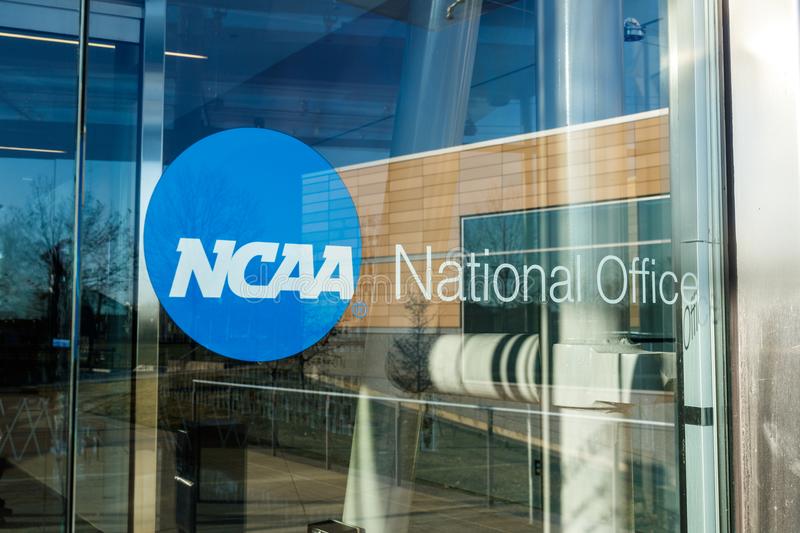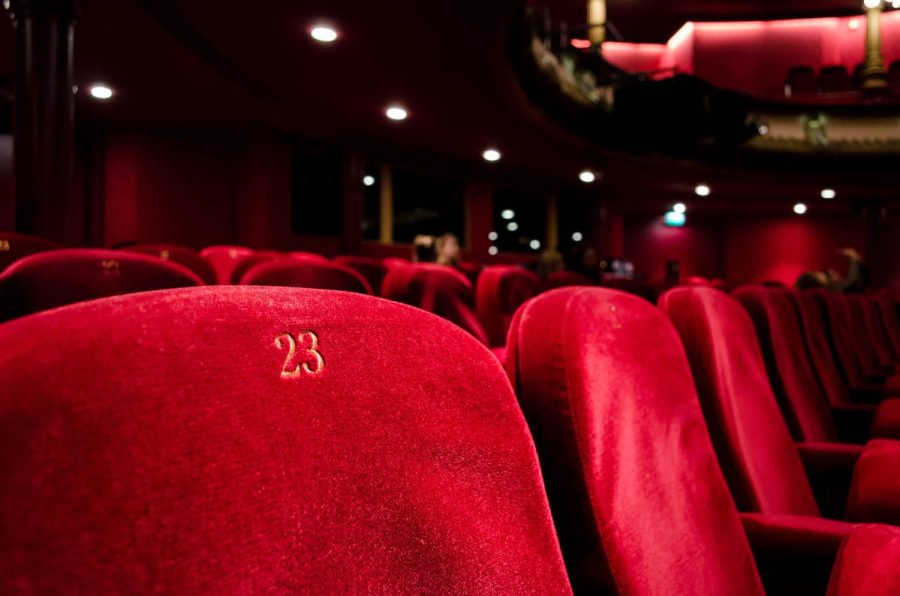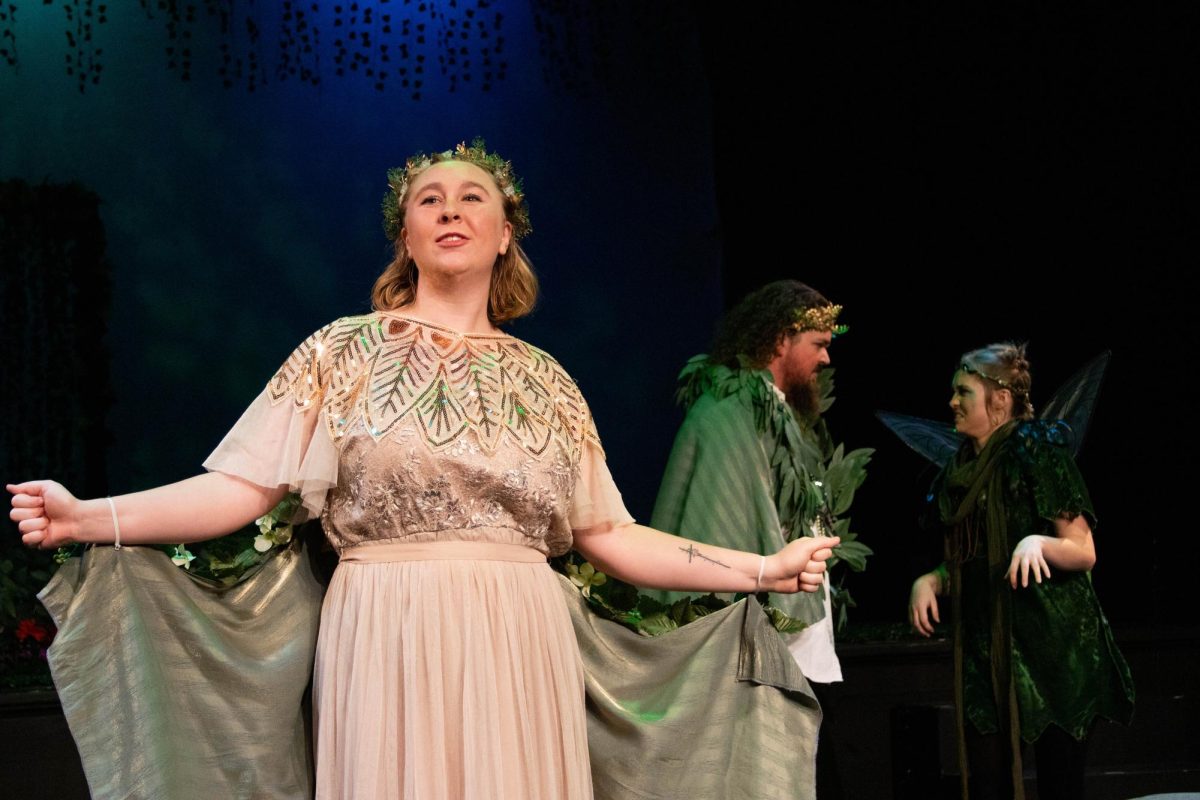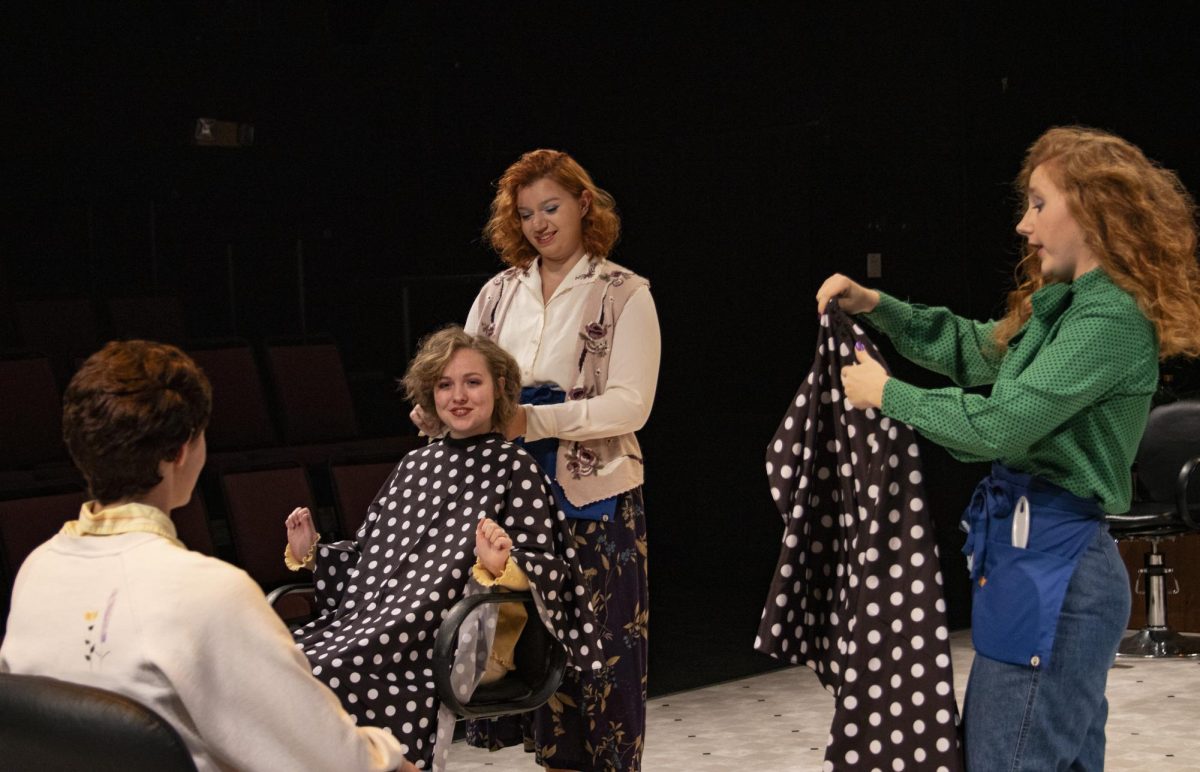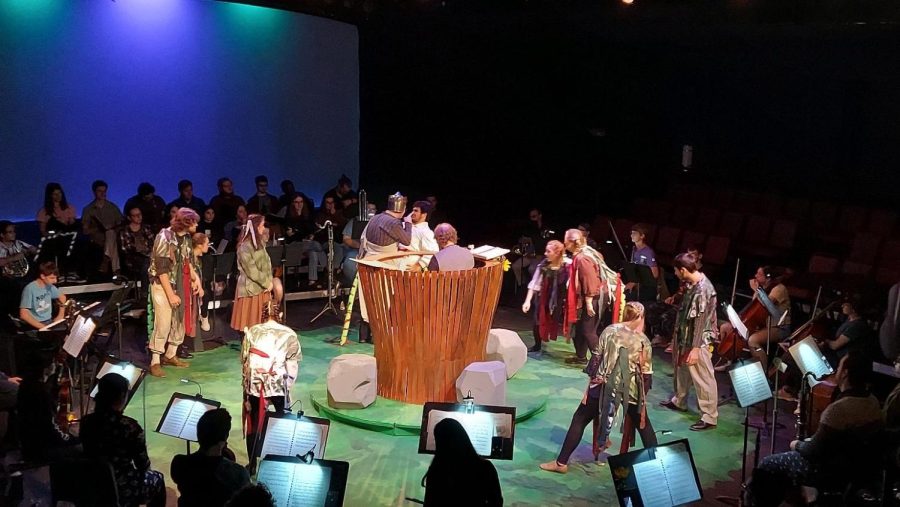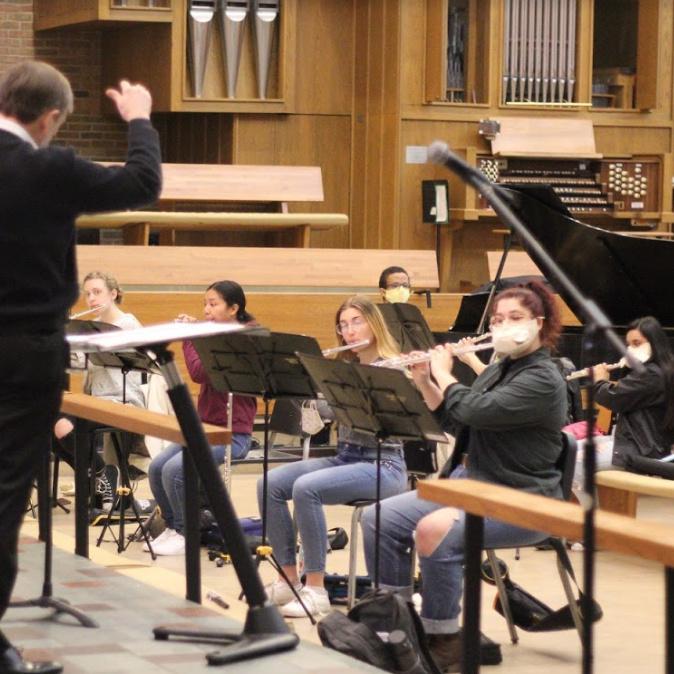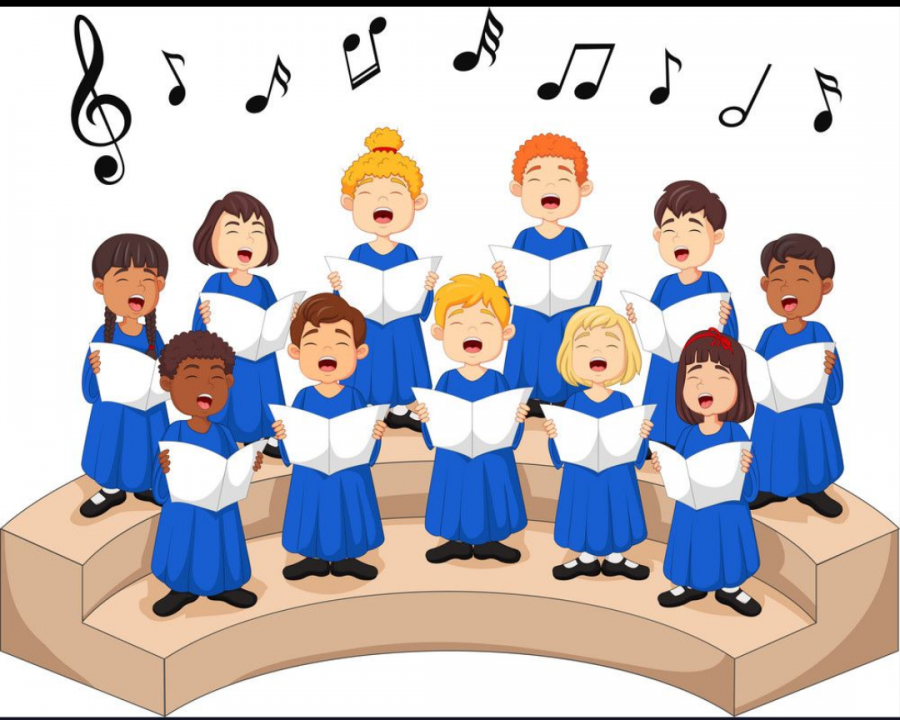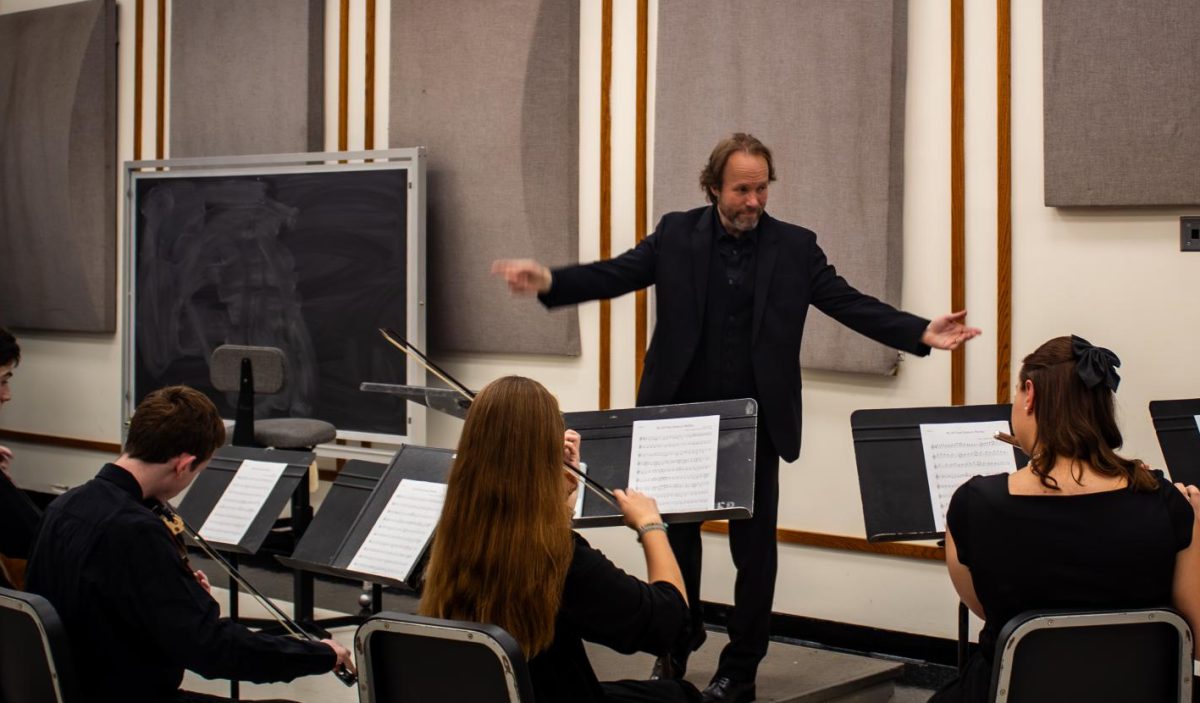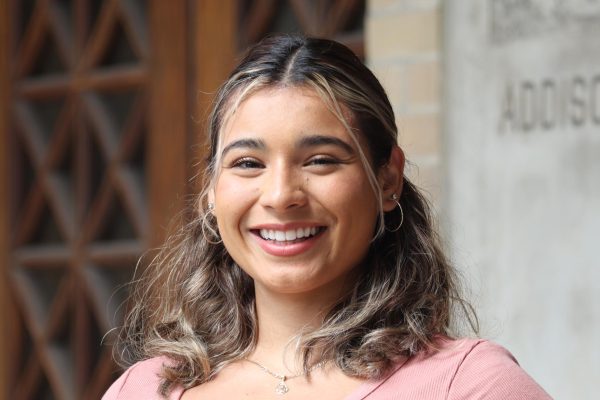An entirely original student-composed musical score will accompany this week’s Artists of Concordia production of William Shakespeare’s “A Midsummer Night’s Dream.”
Senior Ben Verswijver, a music education student, wrote his original score to accompany the four-century-old play over the past summer, collaborating with music professor Maurice Boyer, D.M.A.
“My main goal was just to add to the play and really bring them into the play instead of just being music and art,” said Verswijver, who is currently student teaching at Gwendolyn Brooks Middle School in Oak Park.
Last year, Boyer, who conducts the CUC Chamber Orchestra, and Professor Andrew Pederson, the director of Artists of Concordia Theatre Department and the director of “A Midsummer Night’s Dream,” worked on a production where they used Boyer’s original compositions for “Peer Gynt.”
“We tried looking for a play where we could bring in the Chamber Orchestra once again, and that is where we came to the idea of this play, and having the orchestra play in between acts,” said Pederson.
Shakespeare has been performed only occasionally on the Bergmann Theatre stage in recent years. In 2017, the theater department performed “A Winter’s Tale,” and in the Spring of 2020, the theater department had planned a production of a Shakespeare parody called “The Complete Works of William Shakespeare (Abridged) [Revised],” but the April performance was cancelled because of the COVID-19 shutdown. In 2021, the Concordia Theatre performed Shakespeare’s “Titus Andronicus.”
In the fantastical “A Midsummer Night’s Dream,” there is a group of actors named the mechanicals, who are laborers. The mechanicals decide that they want to produce a play and perform it for the duke in celebration of his wedding. Unfortunately, their performance is not the greatest, yet that is where the comedy lies.
“I’ve always loved how earnest they were with this desire to do something that they believe in and that their performance was gonna be taken so seriously,” said Pederson.
Fairies, magic, unexpected events, desire-induced chaos, glimpses of familiar Roman comedy character types, and love can be seen in its many forms throughout this production.
“I had seen the play once or twice, and I was really trying to focus on the dreamy mystical aesthetic, really focusing on the fairies capturing those magical vibes,” said Verswijver.
Shakespeare’s 16th century language and use of verse can be challenging for students, or even veteran actors.
“I expected the language to be difficult, with Shakespeare, you always have to ask the question, what is he saying, which is where the struggle can be,” said senior Eduardo A. Hinds, who plays Bottom. “Pederson would sit down to explain to us what is happening in the scenes, breaking it down for us.”
The opening performance of “A Midsummer Night’s Dream” will be in the Bergmann Theatre on Tuesday, Nov. 14, with additional performances on Wednesday, Thursday, and Friday. Curtain for all performances is at 7:30 p.m.
“My hope is that they walk away from the space with a kind of enchantment,” said Pederson. “Have some laughs and be freed from the space of real life, engaging and enjoying through the hour and a half.”

